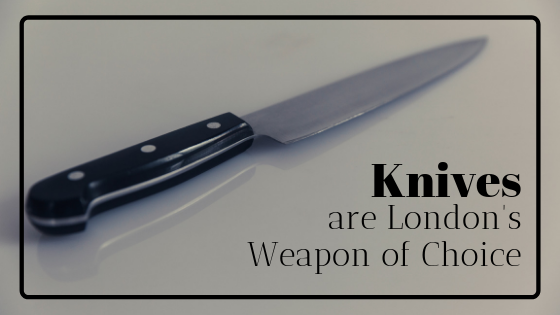Concerning data from the United Kingdom reports a rise in certain types of violent crime. According to official figures from the Ministry of Justice, knife and offensive weapons offences have not been this high in almost a decade, and homicide levels are also at a record high. Unfortunately, it looks like this trend is not likely to go away any time soon.
In the time period between June 2017 and June 2018, there were 32,986 knife and offensive weapon offences. These types of offences include both people possessing an illegal blade or point and people who were using the weapon to make violent threats against others. Numbers have slowly been dropping since the record peak in June, but they still remain abnormally high. In the year ending in September, knife and other violent offensive weapon offenses were at 21,851.
According to the Metropolitan police commissioner, Cressida Dick, the root cause of this shockingly high number of offences is due to gang violence. In London alone, there are an estimated 180 violent gangs. With strict gun control laws in effect in the United Kingdom, most gang warfare tends to turn to knives since they are relatively easy to obtain. Others believe that the causes may be linked in cuts to public services. Without welfare for mental health, potentially dangerous individuals are not given coping methods for dealing with anger. Budget cuts also mean reduced numbers of polices, allowing violence to flourish.
The government aims to fix this issue by cracking down on knife and offensive weapon offences. There is now a two strikes system in place that mandates minimum sentences for people who are 16 or over and have been convicted of a knife or offensive weapon offence for the second time. This means that the number of people sent to prison instead of getting a minor sentence has almost doubled since the new legislation was introduced.
Though this might seem like a good thing, some experts are concerned. Putting nonviolent offenders already predisposed towards gang activity in prison may provide some with the chance to build criminal connections. In an Easter message from the Prince of Wales, he cautioned the public that “we cannot simply arrest ourselves out of this problem.”

